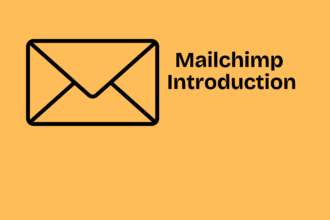If you are thinking about SEO and how to do it in a more effective way creating high-quality content should
be the first thing you should focus on. If you want to be good at content writing then
you focus on engaging, informing, supporting, and delighting your audiences.
The creation of valuable content is also critical for ranking in SERP (Search Engine Result Page) this is why
Periodic Table of SEO Factors begins with the element of content with first-factor begin
with quality content.
Whether we are talking about blog articles or product pages or about pages, or testimonials,
or videos anything that you have created for your users, getting the right content means
you have a foundation of support for all your other SEO activities.
Qu: Quality
“Just think about what the users want and think if you were in the shoes of the search engine, would you feel comfortable sending users to your website?
this is said by Frédéric Debut who is the senior manager programmer lead of Bing. “Would you feel proud to vouch for that website and put that at number one for a given query?”
“If your answer is “yes”, then that’s where a lot more traditional work and more traditional
SEO will come to play. But, if your answer is “no”, then that is a sign that you need
to focus on and add more value to users before you start focusing on technical stuff.”
Users will stay with your content if you provide them substantive, unique, useful content
also building trust and familiarity. The nature of the content will constitute high-quality content
and also on the industry or niche.
Characteristics of Content are broken down into Search Quality Evaluator Guideline (section 5.1)
content-type high quality:
- The content which is informed should be accurate, unique, original, professionally
presented. - The content of Artistic should be original, convey, and unique to a high degree of skill.
- If you news website then the content should be in-depth, accurate, well-cited, and reporting
should be original.
Your life (YMYL) or Your Money brands should focus on these Google’s algorithms that may
provide more weight to the authoritativeness, trustworthiness (E-A-T) signals, and expertise.
You should put time and effort into learning SEO. Content is the cornerstone of your SEO success
as other SEO factors are related to content only.
Rs: Research
After creating high-quality content the next important Factor for SEO Success is
Keyword Research. This will help you develop content that “answers” what people are typing
in Search Engine. There are sellers’ other benefits
“Understanding the language that customers are using is incredibly important, said Eric
Enge, general manager, and longtime SEO at the consulting firm Perficient Digital,
“it makes you a lot more relatable when you like the way they talk, that thing is not
going to change. So keyword research process is a very very important factor for SEO
success. If you don’t do keyword research as an SEO person then this will be the biggest
mistake in your life you are on the wrong path. There are new offshoots of it where the way you
might apply keyword research might be evolving, but there is no need.
Doing Keyword Research can provide you with insights into the nature of the audience’s main
points and needs – whether that’s informational, navigational, or transactional – their
interests, the amount of interest there out (indicate the search volume), the competition level
for those questions, and the format even in which they prefer the information.
Once you decide which keywords are great, use them to tell about content creation and include
them within the content itself so that your audience will have a higher chance of finding you
in the search results.
[Pro Tip]
“Consider classifying keywords by their intent: informational, transactional, navigational, or local. Cross-reference your potential keywords with what currently ranks in the search results to see the types of results Google chooses to display for each query. Google may assign a different intent to the keyword than what you expect; for example, typing “sandwich” generates mostly local results — so a local strategy may be required to compete for that keyword. Understanding what type of content Google displays for the various keywords you’re researching helps clarify what type of content you’ll need to build and which of your pages will be eligible to rank for those terms.” –Lily Ray, SEO director, Path Interactive
For more details, see our SEO: Keyword Research section and these resources:
- The essential metrics to analyze for keyword research success
- Ask the SMXpert: keyword research and copywriting
- Search Intent: The secret ingredient behind successful content development
Kw: Keywords
After you have done the keyword research process your audience is using it to find you and your
a website that includes those keywords within the body of your content, title, and subheading –
To explain in simple language. Think about the words you want your page to be found for
use them naturally.
“The trick is not speaking in terms of what the searcher is going to type into the search box, but speak in terms of what the searcher wants to read,” News Editor for Search Engine Land Barry Schwartz explained,
touching upon the difference between the language used in search queries and the content users expect their queries to surface.
“I think that you don’t have to necessarily think about what the query is. So, for example, I wrote a story about Google Search Console adding notifications around removing the noindex directive for the robots.txt file,” said Schwartz. “Back in the old days, I probably would have included the subject line of that Search Console notification directly in the title because people are going to be copying and pasting that line of text and trying to search for it to find more information. Now, Google is a lot easier and smarter about this and you don’t have to worry about doing exact keyword matches on the query — Google’s much smarter to expand that beyond.”
Always remember that you are writing for the users first and then search engines will easily
understand your content and rank them. Throw away the notion of the “keyword density”
formulas to increase your rankings in search engines.
Fr: Freshness
Search engines like Google, yahoo likes newly, up-to-date, “fresh” details and information.
This does not mean you should make small changes to your pages or website, do update the
published date or continuously churn out new, low-type content pages to get a fresh boost.
If you have a bunch of content stored that is old, you can easily update them and retire
obsolete and expired pages. Doing these practices will make your website user-friendly
and also show the search engines that your website and content are amazingly maintained.
Google also called what is called Query Deserved Freshness (QDF) a ranking factor
for certain types of questions. If your search query becomes very popular suddenly then
- “hurricane” when there exists an active hurricane, For example, Google will apply
QDF to those searches and the results will also change to the stories reflect, information and news about
the topic. This is also true for the featured snippets as well.
You also may be able to harness freshness which is a boost to increase your ranking on the
results pages by creating content that is related to popular trends, upcoming holidays
or events, and breaking and shocking news. Always be aware that the QDF – boost-related subside
over time and your pages will get shuffled deeper in the search engines’ results pages.
(Pro Tip)
“Looking at the news, Google alerts — things like that can help give you topic ideas that are fresh for your industry. When news is fresh, most likely not all of the topics/areas have been covered as usually the story is developing. That allows you to write about a specific angle that hasn’t been covered. This doesn’t necessarily have to be a very controversial opinion, but rather giving people more things to think about. This can be useful for getting engagement and potentially some nice backlinks.” –Itamar Blauer, SEO, and video marketer
An: Answers
This is a very big value in explicit users answering a question on your website pages. For one, you have
created content that is specifically designed to meet the needs of your audiences. Two
search engine pages are increasingly trying to show direct answers to the search results.
If you answer the questions of users’ reality, your pages can also be displayed as the
featured snippet or returned as a voice search result on Google Assistant.
The research concludes that Google search more than half of the searches ends without any click
to other webpage content and this is because partially search engines are looking to satisfy
users by resolving the rights of the searcher right on the results pages. You can say
some of these answers are licensed (as in the case of music lyrics) and some are drawn
directly from the web pages to the link attribution.
1 photo.
You can see in the picture featured snippet is included in the above –
If you Optimize your content for featured snippets and direct answers it may increase more
visibility as compared to the standard organic results on search engines, and doing it
may also increase your chances that it gets returned as a voice search result.
“Some of my clients have said that when they get [rich results], they do get clicks,
said Jessica Bowman, the founder, and CEO of enterprise SEO Consultancy SEO In – hose.”
I am thinking that there is some strategic thinking which is needed to be applied to the
keywords that you are focusing on to rank for the rich snippets to determine, Does it
looks it will go to get a click or i should focus on something else?”
Most of the time you need rich snippets – that boxes on the top – because whatever their
Search intent going to get deeper,” says Bowman. But sometimes user intends to get
quick answers and not use Google. If that’s the intent of the users it may not be
a good search query.”
The reasons to invest your time and efforts can turn your efforts into the answers on
the search engines’ results in pages that should determine what visibility is increased for your
brand. If you want to raise brand awareness, that investment may be justified, if
you are looking to drive more traffic to your website, you will have to explain in detail
to the users what they are likely to click through after viewing the answer you have written
1 photo
Dt: Depth
Your content on your website should be deep enough to answer the questions of the users in
a ‘substantial, way.
“Is your content providing interesting details that are beyond the obvious?’ Does it have original
information? Is that information factual and researched? You have to make sure that
your content gives substantial value when compared to the other pages in the search
results because this is precise what type of content Google wanted to rank on the top
of its results.”
The difficulty of mind thinking part is finding out how thorough your content should look.
As talked above you will want to provide more value than your competition, but it doesn’t
mean necessarily you should throw away extra words at it to achieve the arbitrary count world.
Some types of questions such as “what is the fastest land mammal,” had relatively
straightforward answers, as where other questions, like “why is the cheetah the fastest,”
may warrant a depth explanation. Choose those queries your user’s preference and which are
offered by your competitors when deciding how deep to dive.
Mm: Multimedia
The Internet is built on text. It is the foundation, but how do you find out the best
medium for your content? Other formats can also appeal to your audience
and separate your brand from the competitors. You should consider using video, images,
audio, or other formats which appeal to your audience and keep your brand apart from
the competitors.
After settling on the format which is best for the users, optimize your multimedia
as well as the pages you embed it within to make it more discoverable. One of
the best ways is by using (a CDN) content delivery network to serve your multimedia and take out
load off to your servers. This process can keep the load time very less, which is great
for website speed and the experience of the users.
Whatever format you will go with, you will still want to use descriptive text to content
supplement and also provide context to the search engines and also viewser alike. If it
is in the form of a video or a podcast you can add a transcript. It is the image, make
sure to use alt-text and nice captions You can also mark your multimedia with structured
data to increase the chances that it gets returned as a rich result.
Don’t do too many things. Too many great things like GIFs or any other can be obtrusive,
which will work ultimately against your website goals.



